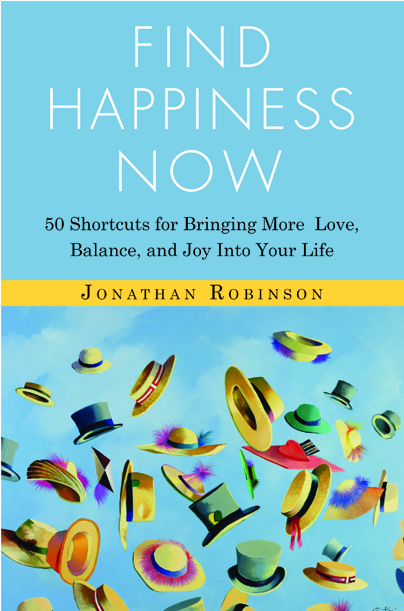 If someone asked me to describe in four simple words how they could achieve wealth, health, and happiness, my answer would be easy: ask the right questions for success. When we ask ourselves good questions, it leads us to make better decisions as to where and how to spend our time. When we fail to ask the right questions, we can easily fall prey to mechanical routines, other people’s goals, and a life of unhappiness. When it comes to taking charge of your time and your life, asking the right questions can be the answer you’ve been looking for.
If someone asked me to describe in four simple words how they could achieve wealth, health, and happiness, my answer would be easy: ask the right questions for success. When we ask ourselves good questions, it leads us to make better decisions as to where and how to spend our time. When we fail to ask the right questions, we can easily fall prey to mechanical routines, other people’s goals, and a life of unhappiness. When it comes to taking charge of your time and your life, asking the right questions can be the answer you’ve been looking for.
I created a list of five questions that seemed the most valuable in gently guiding people back to the life they truly desired. I have found that answering these questions once a month can be an amazingly efficient way to create the life you really want. When answering these questions, it’s best to say your answers out loud to a mate, friend, or co-worker. Another option is to write down what you have to say in a journal. Somehow, saying the answers out loud or writing things down has more impact than simply thinking them in your head.
For each of the five questions that follow, I give a brief description of why it can be useful to ask yourself—or those you love—this question once a month.
1) What can I do this week to bring more fun and/or meaning into my life?
As adults, most of us get lost in daily routines, problems, and plans. Yet, as children, life was very different. We’re not born into this world as planners and problems solvers, but rather as bundles of playful energy. This question can help remind you to schedule something each week to bring fun and/or meaning into your life. It will help provoke your thinking as to what you currently find fun or meaningful, and help you keep these things as priorities in your life
2) What could I feel grateful for in my life?
This may seem like a strange question to get your life in order, but it’s important to remember what is going great in your life. If you focus only on what’s wrong with your life, you’ll always be thinking about problems. Part of living a successful life means focusing on what’s going well, and feeling grateful for how blessed you are.
3) How can I use the gifts I’ve been given to better serve people?
If you want to make a lot of money, get good at giving people what they want. If you want love, become skillful at caring for people. Whatever you want in life, you can receive it by becoming good at serving people. This question will help you to consistently ponder how you can do this more effectively.
4) Is there anything I’m doing that is hurting myself, other people, or steering me off course?
When planes fly to a destination, they are of course over 90% of the time. However, they almost constantly correct their course, so they end up where they’re supposed to be. We need to do likewise. When people make mistakes, they often spend a lot of time in blame, self-pity, or distraction. That just makes matters worse. Instead, what we need to do is quickly realized when we’re off course, and immediately take the actions necessary to get back on track
5) What would be good to do to create more balance, harmony or growth in my life?
To answer this question, it helps to access your intuition, or still, small voice inside. Perhaps there has been something you’ve been avoiding, and this question will help you realize it’s time to move forward. Whenever possible, try to be specific with your answer and the new action(s) you plan to take. Insights are helpful, but only changes in actual behavior are likely to lead to the results you desire.
 These five questions are an easy, quick, and powerful way to gain important insights that will help you to plan your time wisely. Rather than waiting until a problem is big, these questions will help you to handle things when they’re small and easily handled. By writing your answers in a journal, or taking turns answering these questions with a friend, you can help each other create the life you truly desire.
These five questions are an easy, quick, and powerful way to gain important insights that will help you to plan your time wisely. Rather than waiting until a problem is big, these questions will help you to handle things when they’re small and easily handled. By writing your answers in a journal, or taking turns answering these questions with a friend, you can help each other create the life you truly desire.
 What do you want in life? You may think it’s money, or a hot relationship or a better job, but why do you want those things? Because you think if you had them, you’d be even happier. I call this belief the “as soon as” method for finding happiness. You think “As soon as I have more money, or as soon as I lose 10 pounds, or as soon as I find my soul mate, THEN I will be happy.” I have good news and bad news for you. First, the bad news: if you are a member of the “as soon as” approach to finding happiness, you’ll never be happy for long.
What do you want in life? You may think it’s money, or a hot relationship or a better job, but why do you want those things? Because you think if you had them, you’d be even happier. I call this belief the “as soon as” method for finding happiness. You think “As soon as I have more money, or as soon as I lose 10 pounds, or as soon as I find my soul mate, THEN I will be happy.” I have good news and bad news for you. First, the bad news: if you are a member of the “as soon as” approach to finding happiness, you’ll never be happy for long.

 One day I called up my friend, Susan, and asked her how she was. She said, “Things are great. Joe and I just got back from another week long vacation.” I realized that, just about every time I talked to Susan, she had recently gone on vacation. I was a bit annoyed and jealous. “How do you take so many vacations?” I asked. Her reply made me even more annoyed, “We simply make it a priority.” I felt a certain amount of self-pity as I shot back, “Boy, I wish my life was set up so I could take so much time off.” In a compassionate, yet direct manner, Susan replied, “You can if it’s important enough to you. Joe and I just decided we’d take eight weeks off each year. There’s a lot of resistance to doing that, but we’re committed to living the life that we want to live.”
One day I called up my friend, Susan, and asked her how she was. She said, “Things are great. Joe and I just got back from another week long vacation.” I realized that, just about every time I talked to Susan, she had recently gone on vacation. I was a bit annoyed and jealous. “How do you take so many vacations?” I asked. Her reply made me even more annoyed, “We simply make it a priority.” I felt a certain amount of self-pity as I shot back, “Boy, I wish my life was set up so I could take so much time off.” In a compassionate, yet direct manner, Susan replied, “You can if it’s important enough to you. Joe and I just decided we’d take eight weeks off each year. There’s a lot of resistance to doing that, but we’re committed to living the life that we want to live.”  If someone asked me to describe in four simple words how they could achieve wealth, health, and happiness, my answer would be easy: ask the right questions for success. When we ask ourselves good questions, it leads us to make better decisions as to where and how to spend our time. When we fail to ask the right questions, we can easily fall prey to mechanical routines, other people’s goals, and a life of unhappiness. When it comes to taking charge of your time and your life, asking the right questions can be the answer you’ve been looking for.
If someone asked me to describe in four simple words how they could achieve wealth, health, and happiness, my answer would be easy: ask the right questions for success. When we ask ourselves good questions, it leads us to make better decisions as to where and how to spend our time. When we fail to ask the right questions, we can easily fall prey to mechanical routines, other people’s goals, and a life of unhappiness. When it comes to taking charge of your time and your life, asking the right questions can be the answer you’ve been looking for. These five questions are an easy, quick, and powerful way to gain important insights that will help you to plan your time wisely. Rather than waiting until a problem is big, these questions will help you to handle things when they’re small and easily handled. By writing your answers in a journal, or taking turns answering these questions with a friend, you can help each other create the life you truly desire.
These five questions are an easy, quick, and powerful way to gain important insights that will help you to plan your time wisely. Rather than waiting until a problem is big, these questions will help you to handle things when they’re small and easily handled. By writing your answers in a journal, or taking turns answering these questions with a friend, you can help each other create the life you truly desire. Setting and achieving goals is perhaps the most documented technique for manifesting what you want—efficiently and effectively. Since writing your goals is so powerful, it’s important to know precisely what you want to create so you will be pleased when you get it. If you don’t specify your dreams clearly enough, you can end up creating a nightmare. Sometimes people who write down their goals do create a life that is out of harmony. Why? Because their goals are all outward goals—such as making more money. Yet, manifesting more money
Setting and achieving goals is perhaps the most documented technique for manifesting what you want—efficiently and effectively. Since writing your goals is so powerful, it’s important to know precisely what you want to create so you will be pleased when you get it. If you don’t specify your dreams clearly enough, you can end up creating a nightmare. Sometimes people who write down their goals do create a life that is out of harmony. Why? Because their goals are all outward goals—such as making more money. Yet, manifesting more money  create a balanced goal, you need to know two things. First, you need to know exactly what you’d like to manifest in the material world. Second, you want to identify what you hope to experience as a result of achieving your external goal. The easiest way to know what
create a balanced goal, you need to know two things. First, you need to know exactly what you’d like to manifest in the material world. Second, you want to identify what you hope to experience as a result of achieving your external goal. The easiest way to know what  that in the above example with Sarah, I had her create an internal way to measure her progress towards more security and comfort. You can always improve what you can measure. Although creating an “intuitive 1 to 10 scale” is not absolutely precise, I’ve found that people say it works surprisingly well in measuring their progress. All you need to do is rate, on an internal 1 to 10 scale, how you’re currently doing in the area you want to work on. Then, about once a week ask yourself, “How am I now doing (on a 1 to 10 scale)?” Hopefully, you’ll see gradual improvement. If not, it may mean you need to do different tasks in order to be more successful.
that in the above example with Sarah, I had her create an internal way to measure her progress towards more security and comfort. You can always improve what you can measure. Although creating an “intuitive 1 to 10 scale” is not absolutely precise, I’ve found that people say it works surprisingly well in measuring their progress. All you need to do is rate, on an internal 1 to 10 scale, how you’re currently doing in the area you want to work on. Then, about once a week ask yourself, “How am I now doing (on a 1 to 10 scale)?” Hopefully, you’ll see gradual improvement. If not, it may mean you need to do different tasks in order to be more successful.
 I’ve been reading recently about how important a good night’s sleep is for feeling happy during the day and being productive in life. Unfortunately, about 30% of Americans suffer from chronic insomnia and/or sleep deprivation. In our fast paced world, many people try to do with as little sleep as possible, but then end up suffering emotional and health effects from getting too little sleep.
I’ve been reading recently about how important a good night’s sleep is for feeling happy during the day and being productive in life. Unfortunately, about 30% of Americans suffer from chronic insomnia and/or sleep deprivation. In our fast paced world, many people try to do with as little sleep as possible, but then end up suffering emotional and health effects from getting too little sleep. During the winter months, a lot of people end up feeling more “down” than usual. In many cases, this can be due to the fact that they have what is called S.A.D.
During the winter months, a lot of people end up feeling more “down” than usual. In many cases, this can be due to the fact that they have what is called S.A.D.  It’s that time of the year again to make resolutions. Instead of making them and then breaking them like most people do, why not put some punch behind your resolutions? I helped invent a method that practically guarantees your resolutions will be kept. The technique, which I call the Integrity Contract, helps people stay motivated when the going gets tough. After all, it is only people who are consistent over a long period who ultimately succeed in life
It’s that time of the year again to make resolutions. Instead of making them and then breaking them like most people do, why not put some punch behind your resolutions? I helped invent a method that practically guarantees your resolutions will be kept. The technique, which I call the Integrity Contract, helps people stay motivated when the going gets tough. After all, it is only people who are consistent over a long period who ultimately succeed in life

 With Thanksgiving upon us, I thought it was a good idea to blog about giving thanks and the power of gratitude. In my book
With Thanksgiving upon us, I thought it was a good idea to blog about giving thanks and the power of gratitude. In my book  From Bear’s inspiration and the wisdom of many others
From Bear’s inspiration and the wisdom of many others Once you have used this method for awhile, you can even use it to begin to value things that are unpleasant. In the example above, getting cut off by an aggressive driver was not my idea of a good time. Yet, if I’m doing my “thank you” mantra, I’m more likely to see how such an event can serve me. From a higher state of mind, I can see that this driver is helping me learn patience, compassion, and forgiveness—three things I’m not very good at. Fortunately, there are many drivers and people who are willing to help me learn this lesson! Thank you God for all that help.
Once you have used this method for awhile, you can even use it to begin to value things that are unpleasant. In the example above, getting cut off by an aggressive driver was not my idea of a good time. Yet, if I’m doing my “thank you” mantra, I’m more likely to see how such an event can serve me. From a higher state of mind, I can see that this driver is helping me learn patience, compassion, and forgiveness—three things I’m not very good at. Fortunately, there are many drivers and people who are willing to help me learn this lesson! Thank you God for all that help.